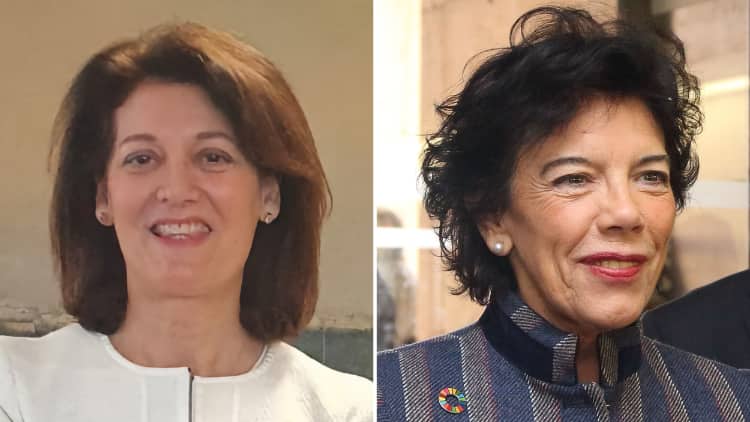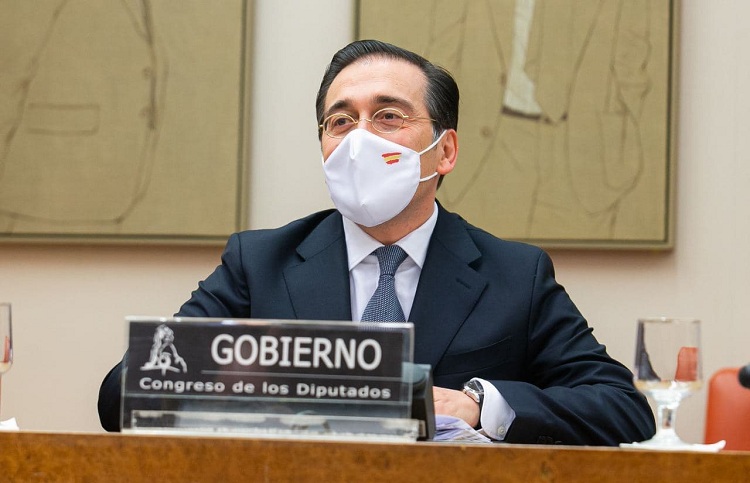The Diplomat
The Council of Ministers yesterday approved the appointment of former Education Minister and former government spokesperson Isabel Celaá as Spain’s ambassador to the Holy See, replacing Carmen de la Peña.
As The Diplomat reported, Celaá’s will be the seventh appointment of a ‘political’ ambassador (who is not a member of the Diplomatic Career) by the government of Pedro Sánchez, something that has caused unease among most diplomats.
From now on, three of the ‘political ambassadors’ appointed by Sánchez are former ministers of his government, as Celáa is joined by the former Minister of Health Carmen Montón, at the OAS (Washington); and the former Minister of Culture José Manuel Rodríguez Uribes, at UNESCO (Paris). The latter replaced Andrés Perelló, former PSOE member of parliament and former leader of the Valencian Socialist Party, who has been the director of Casa Mediterráneo for the past few months.
In addition, three other ambassadors are not diplomats: former PSOE Secretary for Economic Policy and Employment Manuel Escudero, at the OECD (Paris); former Director of the Regional Office in Bogotá of the Organisation of Ibero-American States Ángel Martín Peccis, in Cuba; and former Socialist mayor of Lérida Ángel Ros, in Andorra.
All governments, both PP and PSOE, have made appointments of ‘political ambassadors’, although the record holder is José Luis Rodríguez Zapatero, who had nine at the same time.
It will not be the first time since the restoration of democracy in Spain that the Embassy to the Holy See has been occupied by a person who does not belong to the diplomatic career, as the Socialist and former mayor of La Coruña Francisco Vázquez was ambassador between 2006 and 2011, precisely under the government of Rodríguez Zapatero.
Isabel Celaá, 72 years old, was Minister of Education and spokesperson of the Executive, until Sánchez carried out the reshuffle of his government last July. She is a secondary school teacher and, before being appointed minister, she was Minister of Education, Universities and Research in the PSE-EE government, chaired by Patxi López, from 2009 to 2012.
The announcement that she was going to be appointed ambassador to the Vatican caused surprise in the educational sphere, especially in state-subsidised education, which, to a large extent, has Catholic ideals and which rejected many of the postulates of the so-called ‘Celaá law’ on education.
The Council of Ministers yesterday appointed Victoria González Román as the new ambassador to Denmark, replacing Román Oyarzun, as reported by The Diplomat.
González Román has been a diplomat since 1991 and until a few months ago was director general for Western, Central and Southeast Europe. Previously, she was Spain’s permanent representative ambassador to the Organisation for Security and Cooperation in Europe (OSCE), based in Vienna, and ambassador-at-large for the Alliance of Civilisations.
The Council of Ministers also appointed Marcelino Cabanas as Ambassador-at-Large for Preventive Diplomacy, whose last post was that of Ambassador to Nigeria and who has been, among other things, Deputy Director General for International Security Affairs and Deputy Director General for the United Nations and Global Affairs.
Emilio de Miguel has also been appointed Ambassador-at-Large for the Indo-Pacific. Until December last year he was ambassador to Thailand, and before that he was deputy director for the Pacific, Southeast Asia and the Philippines.
The Council of Ministers also approved the appointment of the current Spanish ambassador to Moscow, Marcos Gómez, as ambassador to Turkmenistan, with multiple accreditation.
Finally, the Executive agreed to the promotion to the professional category of ambassador of Agustín Núñez, who is currently second in command at the Spanish embassy in Russia, and who during his career has been ambassador to Poland and Honduras and deputy permanent representative to the OSCE in Vienna.






